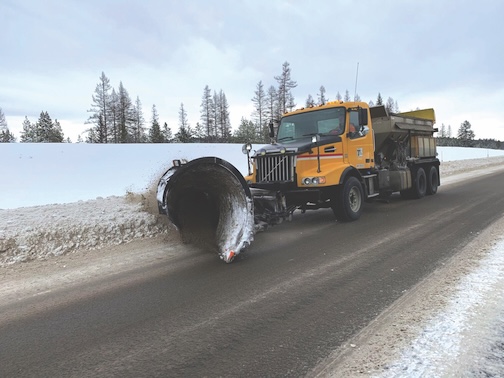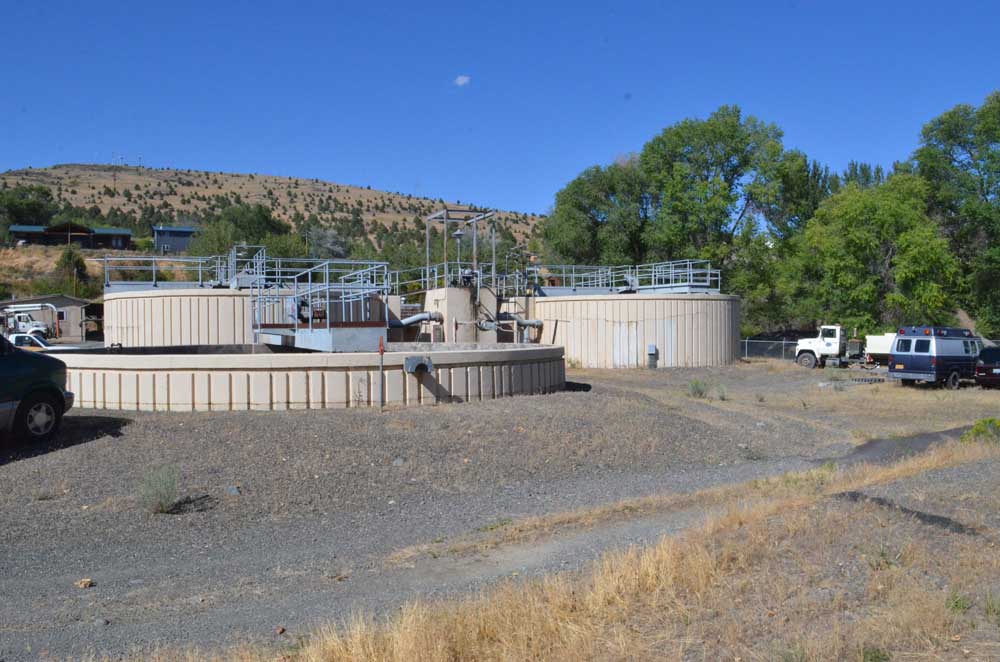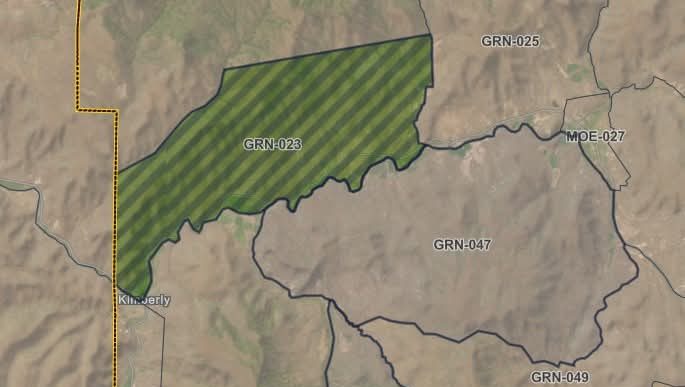TEST DO NOT PUBLISH Building a future far from home
Published 1:30 pm Tuesday, November 5, 2019

- Cheltzy Cox waits for her flight home from Kuwait.
Cheltzy cox grew up with one goal in mind, becoming an Equipment Operator.
Trending
Her cousin Blake Lawrence inspired her to pursue the occupation. Wes Grant, a retired chief of the U.S. navy and Grant County Veteran, told Cox about his career and gave her the goal of joining the navy seabees.
Cox grew up working on her families ranch in Monument. This job was something Cox enjoyed and it also prepared her for the physically demanding tasks at boot camp.
Beginning her service
Several years after graduating high school, Cox joined the Navy and was sent to boot camp on April, 3, 2006.
“Boot camp was not as hard as I thought it was going to be” Cox said. “I grew up working a lot and it helped me. I was surprised to see people who couldnt do push ups or stuff like that because they didn’t have to do physical stuff every day. Boot camp was a breeze for me.”
She outran all the girls in her camp and every guy except 2. Bucking hay, building fences, working on the ranch, and operating equipment had prepared Cox physically.
While being from a rural town of one hundred people benefited Cox in boot camp, being stationed in Port Hueneme, California presented a complicated environment to learn in.
“It was kind of a shock, but you adapt to it. I met a lot of nice people and saw a lot of nice places,” Cox said. “I always had the support of my parents, and the calls home to my mom got me through being away from home.”
Being deployed and Dehdadi
In March 2007, Cox was deployed to Iraq. In 2008 she was deployed to Kuwait. In January 2010, she was deployed to Afghanistan to build Dehdadi 1 and Dedadi 2, two bases for troops.
This project was one of Coxs’ favorites because she had the opportunity to be a crew leader. She enjoyed working with different people, working with the equipment and being able to see a project come to fruition.
“We started from the ground up” Cox said. “We took the dozers out there and started mining it down a couple feet. Then we built the burrows around it and then leveled out the area with scrapers to cut down anywhere from a foot to 6 or 7 feet.”
Her crew also brought gravel in where they were going to have the equipment yard and built the security gates. Anything a base needed — they built it from scratch. Construction did have trials, since some of the locals created tension and tried to prevent the base from being completed.
“When we were trying to build the main supply route, people destroyed the roads … so supplies could not go in and out of bases,” Cox said. “They would RPG (rocket propelled grenade) the roads or have small arms fire at the camp at night. They were just trying to make it there were no suppliers out of those bases.”
After ten months of construction the projects were finished and Cox returned to California to finish her service with four years of shore duty.
Being a woman in the Navy
The entire time Cox served in the Navy, she said she was never treated differently or singled out for being a woman. She was treated the same as everybody else.
However, there were times when her gender came into play. Cox was once called to go on a project on the Pakistani border but no women were serving on the base.
“It was all guys. There was nothing set up on those bases for women,” Cox said. “My chief wanted me to go, but they said, ‘There are no bathrooms set up for women.’ They talked to me, and I said that I wanted to go.”
So she went to work on the project, despite the lack of amenities. While at the base, the men were respectful but didnt give her any special treatment, she said.
Advice from a veteran
When considering joining the Navy, it is important to choose a job that you would stick with, Cox said.
“Take the positive out of everything that you do with your job, Cox said. “It’s not always gonna be bad. There`s always gonna be something good in the end.”
Letters and packages from family and community members also help people in service feel support that can help them get through tough times, she said.
“When I was on deployment, my parents sent me care package all the time and that really helped,” Cox said. “That always perked things up and helped when I got things in the mail. Other people would send letters, and that would always help me.”
Since being home, she has been working at top ranch and living the ranch life in Monument. She spends her time raising cows, raising pigs, building fences, catching fish, and doing all of her favorite outdoor activities.
She said her time in the Navy taught her patients and gave a different perspective on how to carry out projects for diferent pieces of equipment.









